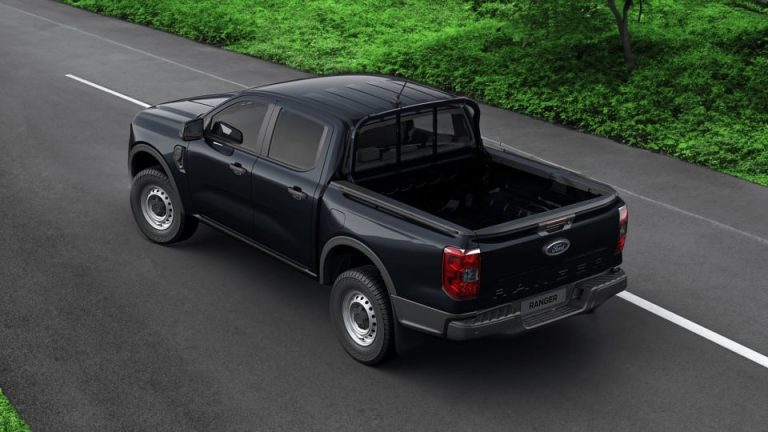Electric Vehicles – Charging towards the future
You may have noticed that there are an increasing number of electric vehicles on the road and the chances are you will start to see more of them in the near future. This is mainly due to the pending ban on the sale of new petrol and diesel cars which is coming in 2030 and as a result car manufacturers are looking to push the sale of electric vehicles.
It is therefore worth consider the incentives available and associated tax matters with electric vehicles. Some of the key areas are explained in more detailed below:-
Providing electric vehicles to employees
Benefit in kind
Providing employees with an electric vehicle as part of their benefits package can be a very tax efficient form of remuneration.
The benefit in kind value for cars provided to employees is calculated by applying a rate to the list price of the car. The rate depends on the car’s CO2 emissions.
For pure electric vehicles, the rate is set at 1% for 2021/22, and will be 2% from 2022/23 through to 2024/25.
For example, a pure electric car with a list price of £50,000 would trigger a benefit in kind of £500 in 2021/22 and £1,000 when the rate increases to 2%
In comparison the normal maximum for petrol/diesel vehicles is 37%, so on a £50,000 vehicle this would mean a benefit in kind of up to £18,500.
It is also worth noting that the rates for hybrid electric cars are up to 14%.
The normal van benefit charge is £3,500 per year. From 6 April 2021, the van benefit charge is nil for all company vans that emit no carbon emissions.
Charging
In terms of charging, HMRC currently considers that electricity is not a fuel for car fuel benefit purposes, however the benefit in kind consequences associated with charging electric cars can vary and is dependent on a number of factors.
Generally speaking, there is no taxable benefit for company cars made available for private use for the following provisions:-
- Employer allows cars to be recharged from a vehicle charging point at work
- Employer pays for a vehicle charging point to be installed at the employees home
- Employer pays for charge card to allow individuals unlimited access to third party charging points
If on the other hand the employees own car is used for business then a taxable benefit (equivalent to the cost to the employer) will arise on the second and third of these provisions, meaning it is only the use of a charging point at work that is potentially not a taxable benefit for employees using their own car.
The company will need to pay Class 1A NIC on any car or fuel benefits in kind, the rate currently being 13.8%.
Business mileage
If an employee pays for their own fuel/charging then businesses can reimburse employees for fuel used for business travel in their company cars.
HMRC advisory fuel rates are as follows (from 1 September 2021):-
Petrol vehicles – vary from 12p to 20p per mile dependant on size of engine
LPG vehicles – vary from 7p to 12p per mile dependant on size of engine
Diesel vehicles – vary from 10p to 15p per mile dependant on size of engine
(these rates also apply to hybrid petrol and hybrid diesel vehicles)
Pure electric vehicles – 4p per mile
A business can pay employees an approved amount of mileage allowance payments each year for employees using their own vehicle for business travel without having to report them to HMRC.
The same rates apply to electric and non-electric vehicles and are 45p for the first 10,000 business miles in a tax year then 25p for each subsequent mile.
Workplace Charging Scheme and Electric Vehicle Homecharge Scheme
The Workplace Charging Scheme is a voucher-based scheme to provide support towards the upfront costs of the purchase and installation of electric vehicle chargepoints. Grants of up to £350 for each socket, up to a maximum of 40 across all sites for each applicant, is available.
The Electric Vehicle Homecharge Scheme is similar, but rather than the customer applying for a voucher, the grant (of up to £350 again) is factored into the price charged by the installer.
Salary sacrifice
A salary sacrifice arrangement is an agreement to reduce an employee’s entitlement to cash pay in return for a non-cash benefit, subject to national minimum wage restrictions.
Using a salary sacrifice arrangement to provide a hybrid or pure electric car can be tax efficient since the taxable income is based on the benefit in kind rate – which can be as low as 1% (rising to 2%) – rather than the cash income foregone.
There are also Class 1 National Insurance savings on the amount of cash income foregone for both the employee and the employer, the rates of which are currently 12% and 13.8% respectively.
Depending on the number of employees a business has, it may be worthwhile considering using a third party to provide the scheme as they often deal with the associated administration.
Fleet vehicles
Grants
Certain low emission vehicles benefit from a government grant of up to £2,500 for cars, £6,000 for large vans, £7,500 for taxis and £16,000 for trucks. Dealers reflect the value of these grants in the list price.
Corporation tax: capital allowances
The CO2 emissions of a car determine the rate of capital allowances available. As such, most cars (non-electric vehicles) are eligible for either 18% writing down allowances (WDAs) or 6% WDAs depending on the car’s CO2 emissions.
Generally speaking new (not second hand) cars and taxis that are ‘electrically propelled’ and purchased from 1 April 2021 will be eligible for a 100% first year allowance.
100% first year allowances are also currently available for expenditure on electric vehicle charging points. Careful consideration should be given to whether electric vehicle charging points may be considered general pool plant and machinery or special rate pool plant and machinery. This will depend on the specific circumstances pertinent to their installation.
Commercial electric vehicles such as vans, lorries, buses, taxis and tractors, as well as investment in qualifying infrastructure will qualify for a “super-deduction” first year capital allowance of 130% from 1 April 2021 to 31 March 2023.
VAT
The same VAT rules apply to electric and non-electric vehicles: VAT is charged 20% on both.
As a general rule, VAT on cars cannot be recovered. However, it is possible for businesses to reclaim the full amount of VAT paid on commercial vehicles and on cars provided they are not available for private use.
Half of the input VAT can be reclaimed on leased cars.
VAT incurred on infrastructure costs such as charging points and associated engineering works can be recovered under the normal rules, provided that the charging points are supplied to the business.
If the business pays for the installation of charging points at employees’ homes, then the charging point is supplied to the employee and the VAT cannot be recovered. Businesses can usually reclaim the VAT for all business-related running and maintenance costs, such as repairs or off-street parking, even if they could not reclaim VAT on the vehicle itself.
With regards VAT on the supply of electricity for charging electric vehicles this is a complicated area but broadly speaking:
- Sole proprietors may recover input VAT on the business use proportion of home
based charging, and all input VAT on charging that is done elsewhere.
- Businesses may not recover VAT charged on supplies of electricity to charge
employees’ electric vehicles at their home (even where there is business use) but they can recover the whole amount of input VAT charged on supplies of electricity to charge employees’ electric vehicles at work.
The business would however be liable for output VAT on any element of electricity for private use as a deemed supply. Alternatively, the business could recover input VAT only on the business use element.
London congestion charge/low emission zones
From 25 October 2021, the 100% discount from London’s congestion charge will only apply to pure electric and hydrogen fuel cell vehicles.
Pure electric vehicles are also exempt from London’s ultra low emission zone charges.
If you wish to discuss this topic further or have any specific electric vehicles in mind that you would like to run some calculations on, then please do not hesitate to contact a member of our tax team.
Need Some Advice?
Looking for some help or a little advice?
Call today on 01484 534431 or fill in our enquiry form below, and we’ll call you back.











